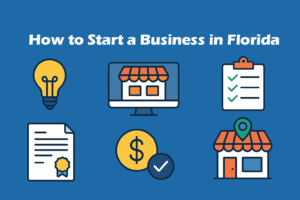New York has long been a launchpad for ambitious entrepreneurs and iconic companies. But while the Empire State offers endless opportunities, starting a business here means following the rules, registering properly, paying taxes, and protecting your venture.
This step-by-step guide from Finance Genetics helps small business owners and startups launch legally and confidently in New York.
1. Develop a Strong Business Idea
Every successful business in New York starts with a clear, viable idea. Entrepreneurs should research their audience, study competitors, and test demand. For example, Glossier, now a beauty giant, began as a blog that built a loyal community before launching products in NYC.
Check out more small business startup tips on Finance Genetics to help refine your idea and plan. The Empire State Development site also offers market data and industry reports.
2. Choose a Business Name
A memorable name helps any business stand out. Verify your name’s availability using the New York State Corporation & Business Entity Database.
If using a name other than the owner’s legal name, file a DBA (“Doing Business As”), called an Assumed Name in New York, through your County Clerk’s Office.
You’ll also want to check if a matching domain is available — Finance Genetics has tips for building a strong brand online.
3. Create a Business Plan & Select a Structure
A clear plan describes what you do, who you serve, how you make money, and how you’ll grow. Investors and lenders expect to see one.
Then choose the best legal structure for your goals:
- Sole Proprietorship: Easy and affordable, but no personal liability protection.
- Partnership: Two or more owners share profits and responsibilities.
- Limited Liability Company (LLC): Protects owners’ assets and offers flexible taxation. Learn more at the NY Department of State – LLC.
- Corporation: Creates a separate legal entity that can issue stock — good for startups seeking investors. Details at the Division of Corporations.
- S Corporation: Passes income directly to owners’ personal tax returns to avoid double taxation.
New York’s Business Express has extra resources to help you choose wisely.
4. Get an Employer Identification Number (EIN)
Most businesses need an Employer Identification Number (EIN) from the IRS. This unique nine-digit number works like a Social Security Number for your business. It’s required to hire employees, open a bank account, and file federal and state taxes. Even if you don’t plan to hire staff yet, an EIN separates your finances and boosts your business credibility. Applying is free and quick online.
5. Obtain Business Licenses and Permits
Depending on your industry and location, you’ll need the proper permits:
- Serving alcohol? Get licensed by the New York State Liquor Authority.
- Restaurants need local health permits.
- Most sellers need a Sales Tax Certificate of Authority from the NY Department of Taxation and Finance.
Check the NY Business Express License Center for more details.
6. Examine Insurance Options in New York
Insurance shields your business from lawsuits or unexpected loss. New York requires Workers’ Compensation and Disability Insurance if you have employees.
Also consider:
- General Liability Insurance: Covers injury or property damage.
- Professional Liability Insurance: For services or advice.
- Commercial Property Insurance: Protects equipment, inventory, or your workspace.
See the New York State Insurance Department for guidance.
7. Explore Funding Options
New York startups can access plenty of funding:
- Small Business Loans: Through banks and credit unions. Find more at SBA New York District Office.
- Angel Investors & Venture Capital: NYC is a global funding hub — try New York Angels.
- Grants: Resources like the NYC Small Business Resource Network can help.
Many companies, like Etsy, scaled globally with local investor support.
8. Typical New York Business Taxes & Fees
Here’s a snapshot of common fees and taxes for New York businesses. Always verify with the NY Department of Taxation and Finance and NY Department of State.
| Type | Description | Typical Fee / Rate |
| LLC Formation Fee | Filing Articles of Organization | $200 |
| Corporation Formation Fee | Filing Certificate of Incorporation | $125 |
| Assumed Name (DBA) | Registering a business name | $25–$100 |
| Biennial Statement Fee | Due every 2 years | $9 |
| Publication Requirement (LLC) | Publish formation notice | $300–$1,200 |
| EIN | Required for most businesses | Free via IRS.gov |
| Sales Tax | State base rate + local | 4%–8.875% |
| Corporate Franchise Tax | On net income for corporations | 6.5% |
| LLC Annual Fee | For LLCs with NY income | $25–$4,500 |
| Payroll Taxes | Includes unemployment, disability | Varies |
Tip: Use Business Express for fee calculators and forms.
9. Understand Business Tax Credits
New York offers valuable tax credits:
- Excelsior Jobs Program — For businesses adding new jobs.
- START-UP NY — Lets qualifying businesses operate tax-free for 10 years.
- Credits for hiring veterans and other target groups.
Explore more at the NY Department of Taxation and Finance and get more tax tips on Finance Genetics.
Ready to Launch?
Starting a business in New York takes research and paperwork — but the reward is huge. With a strong plan, the right structure, permits, insurance, funding, and tax savings, your dream can thrive in the Empire State.







